#Abd al-Aziz al Saud
Explore tagged Tumblr posts
Text
Exactly one hundred years ago, the Tanomah Massacre took place, say the Houthis. Indeed, this happened, says the expert
In North Yemen, the Houthis have been ruling for eight years, a curious mix of monarchy and papacy, topped with a hint of Guevara. Today they commemorate the Tanomah massacre. Now an idyllic town high in the Saudi mountains, a century ago a Saudi militia slaughtered thousands of Yemeni pilgrims there. Often used in propaganda, yet nonetheless the truth. Tanomah is located in the southwest of…

View On WordPress
0 notes
Text

Last weekend I visited Qatar. I only actually saw Doha and as it was during Ramadan daytime activities were quite limited, with museums having different opening hours and some of the Souk was closed.
Qatar seemed like a country in a hurry and wanting to be a part of EVERYTHING. The National Museum shows this with displays from how they are involved in other countries with their financial aid and support, the pride in having the Middle East’s main news channel, the recent FIFA Men’s World Cup and their involvement in international negotiations.
Qatar has been inhabited for at least 50,000 years and they have uncovered Stone Age settlements.
In 224 AD, the Sasanian Empire gained control over the territories surrounding the Persian Gulf. Qatar had an important role in the commercial activity of the Sasanids partly due to the pearl industry.
Under the Sasanid reign most of the area was Christian. In 628, the Islamic prophet Muhammad sent a Muslim envoy and mass conversions took place. In the middle of the century, the Muslim conquest of Persia resulted in the fall of the Sasanian Empire.
In 1515 the Portuguese arrived and by 1521 they had seized a large part of eastern Arabia. In 1550, the inhabitants of Al-Hasa voluntarily submitted to the rule of the Ottomans, preferring them to the Portuguese. The Portuguese however regained control in 1551.
In 1766, members of the Al Khalifa family of the Utub tribal confederation migrated from Kuwait to Zubarah in Qatar and took control. In 1783, they and allied Arab tribes invaded and annexed Bahrain from the Persians.
Between 1788 and 1795 present day Qatar was under the rule of Saud ibn Abd al-Aziz of Wahhabi (the first Saudi state) until Al Khalifa was returned to power ruling from Bahrain.
In 1825, the House of Thani was established with Sheikh Mohammed bin Thani as the first leader. Thani signed "an agreement, not a formal treaty" with Britain in 1868 that recognised Qatar’s separate status (from Bahrain).
The Al Thani tribe submitted to Ottoman rule in 1871 which lasted until 1915. The Anglo-Ottoman Convention of 1913 saw the Ottomans agree to renounce their claim to Qatar and withdraw their garrison from Doha. However, with the outbreak of World War One, nothing was done to carry this out, and the garrison remained in the fort at Doha, although its numbers dwindled as men deserted until it was abandoned in 1915.
Qatar became a British protectorate on 3 November 1916 when the United Kingdom signed a treaty with Sheikh Abdullah bin Jassim Al Thani. The treaty reserved foreign affairs and defence to the United Kingdom but allowed internal autonomy.
On 5 May 1935 another treaty with the British government which granted Qatar protection against internal and external threats.
Oil was discovered in 1939, but not exploited until after the World War Two. Oil exports began in 1949, and oil revenues became the country's main source of revenue (as the pearl trade declined).
When Britain officially announced in 1968 that it would withdraw from the Persian Gulf in three years' time, Qatar joined talks with Bahrain and seven other Trucial States to create a federation. Regional disputes, however, persuaded Qatar and Bahrain to withdraw from the talks and become independent states separate from the Trucial States, which went on to become the United Arab Emirates.
Qatar has around 3 million residents, but only around 10% are Qatari citizens with the vast majority of residents being expatriates and migrant workers.
Islam is the official religion, although only around two-thirds of the population are Muslim with large Hindu and Christian minorities (around 15% each).
0 notes
Text
Personas Importantes
Abd- al Aziz, Ibn- al Hassan, Abd- al Aziz Musa Ibn, Ibn Nasayr, Abd- al Aziz III Ibn Saud, Abd- al Malik, Muzzafar, Abd- al Malik Ibn Marwan, Abd- al Munid, Abd- al Muttalib, Abd- al Qadir, Abd- al Rahman I, Abd- al Rahman II, Abd- al Rahman III, Abd- al Rahman IV, Abd- al Rahman- al Qafiqui, Abd- al Raziq, Abd Allah Abd- al Krim, Abdulaziz, Abdulhamit I, Abdulhamit II, Abdullah I, Abdullah II, Abdulmecit I, Abdul Rahman Tunaku, Abu Abdullah Muhammad, Abu Bakr, Abu Khanifa, Abu Nuwas, Abu Salt Umayya, Abul I Hassan
2 notes
·
View notes
Text
A brief history of the Kingdom of Saudi Arabia (without Yemen)
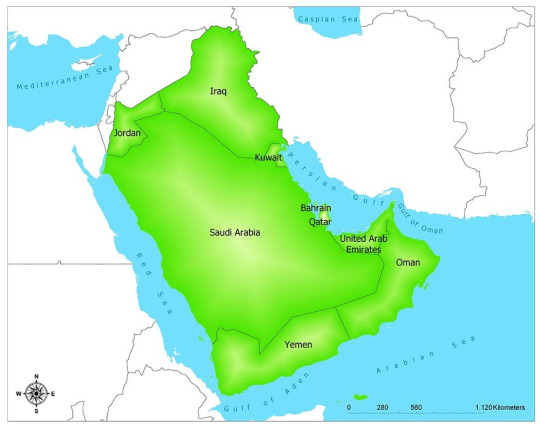
Arabia is a large piece of desert land situated in Western Asia. It was inhabited by many individual tribes know as Bedouins. Some Bedouin communities are still around today.
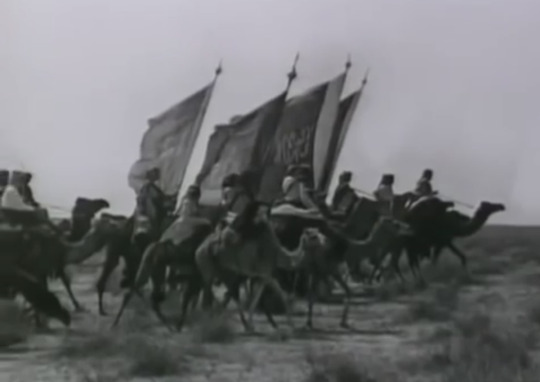
Example of how the Saudi military would have looked like.
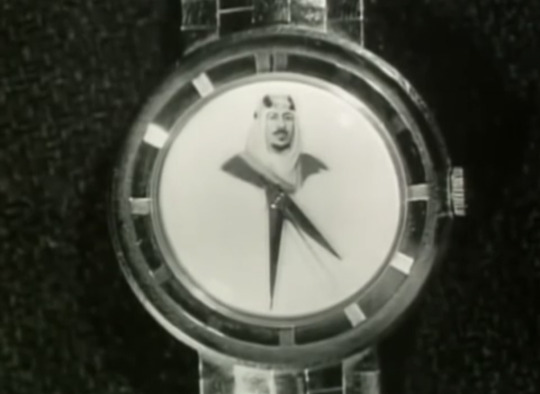
Solid gold watches with Saud’s face printed in the middle where given as gifts to friends of the crown.
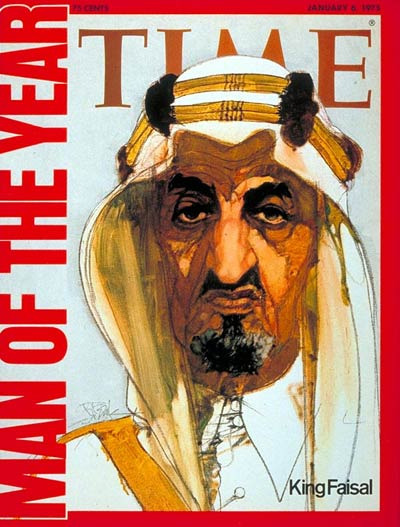
King Faisal was declared as Time magazine’s ‘Man Of The Year’ for his progressive views and actions.
In the 7th century the religion of Islam was founded by the Prophet Muhammad (PuH) who built Mosques in Mecca and Medina, which were territories in Arabia. These places had and have holy significance to Muslims (followers of the religion of Islam) all around the world, and would be the most important destinations for Islamic pilgrims. Muhammad ibn Abd al-Wahhab (not related to the Prophet Muhammad) started a new, very radical strand of Islam called Wahhabism in the 18th century. He had extreme beliefs about the importance of going to battle, the rights of women, and the prohibition of technical innovation. Wahhabism’s central belief is that Muslims is that modernisation is sinful and so seek to live their lives as though they are still in the 7th century. Although this strand starkly contradicted the peaceful message of Islam, many people did adopt this belief system and are called Wahhabi’s. Wahhabis still believe that they hold the one true doctrine and recognise people belonging to other belief systems (including other Muslims) as their enemy. One Bedouin tribe was the Saud family. In the mid 18th century, the visionary leader of the tribe, Muhammad ibn Suad, wanted to gain power over all the other tribes and conquer Arabia. To do this, they needed a military, but they had none. They needed the help of the Wahhabis.
The Wahhabis would give their military to the Saud family in exchange for political and religious influence when the family succeeded in ruling the area. An alliance was born. Slowly but surely the Saud family conquered major parts of Arabia. In 1924, the leader of the tribe Abdul Aziz bin Rama al Saud (or ‘ibn Saud’ for short) took over Mecca and Medina. The family gained much of it’s wealth and power by charging pilgrims who came to visit these holy sites. Now that lots of Arabia was conquered by the Saud family and the tribes who allied with them, the area is recognised as ‘The Kingdom of Saudi Arabia’ meaning the parts of Arabia belonging to the Saudi family. The Wahabis now had more authority including control over the educational and legal systems. A new source of revenue presented itself to the Saudi’s when oil was found in neighbouring countries. Ibn Saudi sought to take advantage of this and allowed the Oil Company of Souther California to find and drill oil reserves in Saudi Arabia. This was at the time of the Great Depression where oil was scarce in America. President Roosevelt knew that he needed to make an alliance with Saudi Arabia in order to obtain its vast amounts of oil. The wealth of Saudi family boomed, and ties grew strong between the West and Saudi Arabia. After Ibn Saud died, his brother Suad was appointed ruler of Saudi Arabia. Yet, it was suspected that he could not be trusted with money due to his extravagant lifestyle and the Kingdom would soon run into dept. The Wahhabis also disapproved of his relationship with the Egyptian president and socialist Gamal Nasser (who had Soviet connections). He was declared unfit to rule and was replaced by his brother Faisal, who became the regions most popular monarchs. King Faisal worked to propel the Kingdom into the modern age, introducing better hospitals, opening schools for girls and the abolishing slavery with the help of John F Kennedy, all against the will of the Wahhabis. Furthermore, King Faisal did not support the state of Israel which meant that relations were damaged between Saudi and the United States. King Faisal was later assassinated. The Wahhabis were angered by the Soviets invasion in neighbouring Afghanistan. Saudi Arabia and America’s mutual disapproval of the Soviet Union worked to re-strengthen their relationship and America supplied Saudi Arabia with weapons, money and military training to the Saudi troops to help defeat the Soviets. A young Osama Bin-Laden was one of Saudi fighters who fought in Afghanistan. In 1990, the dictator of Iraq, Saddam Hussain, invaded Kuwait. The Saudi monarch invited American and foreign militaries to station themselves inside their Kingdom to help fight against Saddam Hussain. This was objected by the radical religious authorities since they did not want foreign forces on their lands. To satisfy the conservatives, King Fahad *directed more funds towards them. This solution backfired since now that the radicals had more power, they sought to make Saudi Arabia a much more conservative place again. This involved removing women’s rights to study and work, and introducing more funding to conservative movements outside the Kingdom. Some American troops stayed after the Gulf war, which aggravated these groups even more, leading to a rise in terrorism against Americans living in Saudi Arabia. There are speculations that this triggered the horrific events of 9 11. The UK’s Serious Fraud Office started an investigation to verify the claim that some Saudi officials took bribes from major arms manufacturer, BAE systems. The investigation was ordered to be stopped by then Prime Minister Tony Blair and many where upset by his unpecedented compromise of the UK’s judicial systems and ideals of democracy. This is just another example of how the West will readily break down their values just to keep Saudi Arabia happy, so that they can keep their profitable ties with the kingdom, such as selling them weapons. The new King Abdullah wanted to modernise Saudi Arabia again and move away from the conservative religious establishments. He also sought to expand his economy by trading with other countries like India and China. Saudi Arabia is investing more money into education and sciences so that it can be less dependant on its finite natural resource and work to establish itself as a stable economy in the future. In 2009, King Abdullah announced that he was dismissing ultra-conservatives from their high positions. By distancing themselves from their tribal Bedouin roots, progress is being made today. For example, female ministers are being appointed, there are many more career and business opportunities and international artists are invited to perform concerts inside the Kingdom. Crown Prince Muhammad Bin Salman has publicly promised to end Saudi extremism. It is a shame that many people fail to educate themselves about the religion which is represented by one quarter of our worlds population. By lack of the want to learn more about the world around us, many people only see the radical strands of Islam, such as Wahhabism, and are quick to slur this mislead idea onto of the whole of Islam. I myself have met a shocking amount of non-Muslims who are certain that Islam is a violent, backward, women hating religion, even while the strong majority of Muslims support the Islamic ideals of peace, innovation and protection of human rights, just as the Prophet Muhammad tried to push for thousands of years before.
2 notes
·
View notes
Text
Dictators of Today
President Ashraf Ghani Ahmadzai of Afghanistan
President Abdelkader Bensalah of Algeria
President Joao Lourenco of Angola
President Ilham Aliyev of Azerbaijan
King Hamad bin Isa Al Khalifa of Bahrain
President Alexander Lukashenko of Belarus
Sultan Haji Waddaulah of Brunei
President Pierre Nkurunziza of Burundi
Prime Minister Hun Sen of Cambodia
President Paul Biya of Cameroon
President Faustin Archange Touadera of the Central African Republic
President Idriss Deby of Chad
President Xi Jinping of China
President Felix Tshisekedi of the Republic of Congo
President Denis Sassou Nguesso of the Congo
President Miguel Diaz-Canel of Cuba
President Teodoro Mbasogo of Equatorial Guinea
President Isaias Afwerki of Eritrea
Prime Minister Abiy Ahmed of Ethiopia
President Albert-Bernard Bongo of Gabon
President Hassan Rouhani of Iran
President Barham Salih of Iraq
President Kassym-Jomart Tokayev of Kazakhstan
President Bounnhang Vorachith of Laos
President Nouri Abusahmain of Libya
President Mohamed Ould Ghazouani of Mauritania
President Daniel Ortego of Nicaragua
President Kim Jong-un of North Korea
Sultan Qaboos bin Said Al-Said of Oman
Emir Tamin Al Thani of Qatar
President Vladimir Putin of Russia
President Paul Kagame of Rwanda
King Abdullah Aziz Al Saud of Saudi Arabia
President Mohamed Abdullahi Mohamed of Somalia
President Salva Kiir Mayardit of South Sudan
President Abdel Fattah Abdelrahman Burhan of Sudan
King Mswati III of Swaziland
President Bashar al-Assad of Syria
President Emomalii Rahmon of Tajikistan
Prime Minister Prayut Chan-o-cha of Thailand
Chairman Losang Jamcan of Tibet
Prime Minister Recep Erdogan of Turkey
President Gurbanguly Berdimuhammedow of Turkmenistan
President Yoweri Museveni of Uganda
King Sheikh Khalifa Nahyan of the United Arab Emirates
President Shavkat Mirziyoyev of Uzbekistan
President Nicolas Maduro of Venezuela
President Nguyen Phu Trong of Vietnam
President Brahim Ghali of Western Sahara
President Abd Al-Hadi of Yemen
Tear them down. Destroy their seats of power, bring it all down.
With all that’s going on in the world, change is on a precipice.
But I can’t help but see that the rest of the world is silent.
We have been silent for too long.
America is n o t the only one, so as we remember and honour George Floyd, (and https://en.wikipedia.org/wiki/Category:Victims_of_police_brutality) we cannot forget the world.
https://en.wikipedia.org/wiki/List_of_killings_by_law_enforcement_officers_by_country
America might be getting the biggest screen time right now, but it is only the beginning.
Racism is a global issue.
It’s our issue.
America is just first in line.
3 notes
·
View notes
Photo

[TASK 158: QATAR]
There’s a masterlist below compiled of over 250+ Qatari faceclaims categorised by gender with their occupation and ethnicity denoted if there was a reliable source. Special thanks to @batdadrpc for helping us out with this masterlist! If you want an extra challenge use random.org to pick a random number! Of course everything listed below are just suggestions and you can pick whichever faceclaim or whichever project you desire.
Any questions can be sent here and all tutorials have been linked below the cut for ease of access! REMEMBER to tag your resources with #TASKSWEEKLY and we will reblog them onto the main! This task can be tagged with whatever you want but if you want us to see it please be sure that our tag is the first five tags, @ mention us or send us a messaging linking us to your post!
THE TASK - scroll down for FC’s!
STEP 1: Decide on a FC you wish to create resources for! You can always do more than one but who are you starting with? There are links to masterlists you can use in order to find them and if you want help, just send us a message and we can pick one for you at random!
STEP 2: Pick what you want to create! You can obviously do more than one thing, but what do you want to start off with? Screencaps, RP icons, GIF packs, masterlists, PNG’s, fancasts, alternative FC’s - LITERALLY anything you desire!
STEP 3: Look back on tasks that we have created previously for tutorials on the thing you are creating unless you have whatever it is you are doing mastered - then of course feel free to just get on and do it. :)
STEP 4: Upload and tag with #TASKSWEEKLY! If you didn’t use your own screencaps/images make sure to credit where you got them from as we will not reblog packs which do not credit caps or original gifs from the original maker.
THINGS YOU CAN MAKE FOR THIS TASK - examples are linked!
Stumped for ideas? Maybe make a masterlist or graphic of your favourite faceclaims. A masterlist of names. Plot ideas or screencaps from a music video preformed by an artist. Masterlist of quotes and lyrics that can be used for starters, thread titles or tags. Guides on culture and customs.
Screencaps
RP icons [of all sizes]
Gif Pack [maybe gif icons if you wish]
PNG packs
Manips
Dash Icons
Character Aesthetics
PSD’s
XCF’s
Graphic Templates - can be chara header, promo, border or background PSD’s!
FC Masterlists - underused, with resources, without resources!
FC Help - could be related, family templates, alternatives.
Written Guides.
and whatever else you can think of / make!
MASTERLIST!
F:
Wedad Al Kuwari (1967) Qatari - writer.
Sahar Hussein (1969) Qatari - actress.
Fatema (1977) Qatari - actress.
Fatma Al Thani (1978) Qatari - instagrammer (ftmalthani).
Hend Fakhroo (1982) Qatari / Egyptian - director.
Sophia Al Maria (1983) Qatari / Unspecified White - filmmaker, writer, and artist.
Najwa Elkebesi (1983) Qatari - actress.
Dareen Abughaida (1984) Qatari - tv presenter.
Reem Abd-elrahman (1986) Qatari - actress.
Anum Bashir (1986) Qatari - instagrammer (desertmannequin).
Raya Alkhalifa (1994) Qatari - instagrammer (rayaalkhalifa).
Sharifa Akeel (1997) Qatari / Filipina - model, Mutya ng Pilipinas 2018, and Miss Asia Pacific International 2018.
Dana Al Fardan (?) Qatari - singer-songwriter, pianist, and composer.
Amal Al Muftah (?) Qatari - filmmaker.
Siham Alawami (?) Qatari - filmmaker.
A.J. Al Thani (?) Qatari - filmmaker.
Asma Al Hamadi (?) Qatari - tv presenter.
Aesheh Piroozi (?) Qatari - makeup artist (instagram: osha.makeup).
Husnaa (?) Qatari - Instagrammer (eatsleepbefancy)
Rasha Al Khaldi (?) Qatari - instagrammer (rasha_designs)
Mariya (?) Qatari - model (instagram: model_mariyaa)
Kholoud Ahmed (?) Qatari - actress.
Hamda Saleh (?) Qatari - actress.
F - Athletes:
Bahiya Al-Hamad (1992) Qatari - rifle shooter.
Nada Arkaji (1994) Qatari - swimmer.
Nadeen Wehdan (1997) Qatari - trampolinist.
Dalal Mesfer Al-Harith (1999) Qatari - sprinter.
Mubaraka Al-Naimi (2001) Qatari - tennis player.
M:
Nasser Al-Othman (1939) Qatari - tv presenter and author.
Hilal Mohamed (1945) Qatari - actor.
Ghazi Hussein (1950) Qatari - actor.
Ali Mirza (1952) Qatari - actor.
Abdulaziz Nasser (1952) Qatari - music composer.
Ghanem El Soleiti (1956) Qatari - actor.
Abdulaziz Jassem (1957) Qatari - actor.
Jassim Al Ansari (1967) Qatari - actor.
Abdallah Abdel Aziz (1969) Qatari - actor.
Salah ElMullah (1957) Qatari - actor.
Nasser Mohammed (1972) Qatari - actor.
Hamad Ali Elsharshani (1973) Qatari - actor.
Khalid Jassem (1977) Qatari - tv host, tv presenter, interviewer, and writer.
Asrar Muhammed (1978) Qatari - actor.
Fahad Al Kubaisi (1981) Qatari - singer-songwriter, model, producer, and activist.
Faisal Rasheed (1982) Qatari - actor.
Naser Mestarihi (1987) Qatari Arab, Jordanian Arab / Pashtun Pakistani - singer-songwriter, guitarist, and bassist.
Abdulla Al-Abdulla (1992) Qatari - instagrammer (abdulla).
Hamad Al Amari (?) Qatari / Irish - actor, comedian, producer, director, writer, entrepreneur, and philanthropist.
Adel Al Ansari (?) Qatari - actor.
Jassim Al Rumaihi (?) Qatari - filmmaker.
Abdulaziz Al-Ajail (?) Qatari - youtuber (Abdulaziz Al-Ajail) and instagrammer (zozalajail).
Khalifa Al Haroon (?) Qatari - tv personality and radio personality.
Abdulaziz Al-Mahmoud (?) Qatari - tv presenter and author.
Mohammed Saadon Al Kuwari (?) Qatari - tv presenter.
Abdulaziz Al Ishaq (?) Qatari - tv presenter.
Muhammed Anwar (?) Qatari - actor.
Thamer Al Turki (?) Qatari - singer.
Muhammed Elbalam (?) Qatari - actor.
Ahmad Abdallah (?) Qatari - actor.
Farid Elgabri (?) Qatari - actor.
Jabr Alfayed (?) Qatari - actor.
Salem Al Mansoori (?) Qatari - actor.
Ahmed Mubarak (?) Qatari - actor.
Issa Al Kubaisi (?) Qatari - singer.
Abdullah Al Haiel (?) Qatari - actor.
Abdul Aziz Ismail (?) Qatari - actor.
Abdulaziz Alyahri (?) Qatari - actor.
Mohammed Moftah (?) Qatari - actor.
Salem Maged (?) Qatari - actor.
Anwar Abdulrahman (?) Qatari - actor.
Syed Abdul Rahman (?) Qatari - actor.
Kholoud Al Jaber (?) Qatari - actor.
Ahmed Al Jabber (?) Qatari - actor.
Ali Moftah (?) Qatari - actor.
Mahmoud Al-Nobi (?) Qatari - actor.
Abdulla Al-Malky (?) Qatari - actor.
Sulaiman Al-Duek (?) Qatari - actor.
Hassan Ibraheem (?) Qatari - actor.
Mohammad Asheq (?) Qatari - actor.
Mohamad Awny (?) Qatari - actor.
Jassem Bashir (?) Qatari - actor.
Mohamad Al-Nobi (?) Qatari - actor.
Abd El Rahim El Sdeeky (?) Qatari - writer.
Khaled Abd Al-Karim / Khaled Al-Hammady (?) Qatari - actor.
M - Athletes:
Ibrahim Ahmad (1961) Qatari - football player.
Badr Bilal (1962) Qatari - football player.
Nasser Al-Attiyah (1970) Qatari - rally driver, sport shooter and sheik.
Amer Al Kaabi (1971) Qatari - football player.
Jassim Al Tamimi (1971) Qatari - football player.
Jafal Rashed Al-Kuwari (1972) Qatari - football player.
Zamel Essa Al-Kuwari (1973) Qatari - football player.
Yasser Nazmi (1973) Qatari - football player.
Ali Ahmed Salem (1973) Qatari - archer.
Ibrahim Al-Rumaihi (1974) Qatari - football player.
Mohammed Al-Modiahki (1974) Qatari - chess grandmaster.
Ahmed Faris Al-Binali (1975) Qatari - football player.
Amer Al Dossari (1977) Qatari - football player.
Mohammed Salem Al-Enazi (1976) Qatari - football player.
Dahi Al Naemi (1978) Qatari - football player.
Abdulaziz Karim (1979) Qatari - football player.
Meshal Al Enezi (1979) Qatari - football player.
Rashid Al-Athba (1980) Qatari - shooter.
Mohammed Al-Sayed (1981) Qatari - chess grandmaster.
Huzam Nabaah (1981) Qatari - boxer.
Mostafa Mido (1981) Qatari - football player.
Mohamed Issa Al-Thawadi (1981) Qatari - sprint hurdler.
Rashid Shafi Al-Dosari (1981) Qatari - discus thrower.
Ahmad Hassan Moussa (1981) Qatari - decathlete.
Muamer Abdulrab (1982) Qatari - football player.
Fahad Al Shammari (1982) Qatari - football player.
Waheed Mohammed Taher (1982) Qatari - football player.
Awais Malik (1982) Qatari - cricketer.
Ahmed Shahdad (1982) Qatari - football player.
Salman Ahmed Al-Ansari (1983) Qatari - football player.
Nasser Al Malki (1983) Qatari - motorcycle racer.
Hassan Al Qadhi (1983) Qatari - football player.
Mashel Al Naimi (1983) Qatari - motorcycle racer.
Ahmed Saif (1983) Qatari - snooker player.
Ali Rahma Al-Marri (1983) Qatari - football player.
Ezzat Jadoua (1983) Qatari - football player.
Ibrahim Al-Ghanim (1983) Qatari - football player.
Saeed Al Sulaiti (1985) Qatari - motorcycle racer.
Mohammed Rizlan (1985) Qatari - cricketer.
Mohammed Nadeem (1985) Qatari - cricketer.
Mohammed Saad Al-Sulaiti (1985) Qatari - football player.
Ali Sanad (1986) Qatari - football player.
Abdullah Al-Deyani (1986) Qatari - football player.
Khalid Habash Al-Suwaidi (1984) Qatari - discus thrower.
Essa Al-Buainain (1984) Qatari - weightlifter.
Abdulla Al-Berik (1984) Qatari - football player.
Saad Abdulrahman (1985) Qatari - basketball player.
Malek Saleem (1985) Qatari - basketball player.
Waleed Jassem (1986) Qatari - football player.
Jumah Faraj (1985) Qatari - volleyball player.
Younes Yaqoub (1986) Qatari - football player.
Saud Al Hajiri (1986) Qatari - football player.
Khalid Al-Hammadi (1987) Qatari - fencer.
Abdulqader Hikmat (1987) Qatari - Taekwondo practitioner.
Mohsen Al-Yazidi (1987) Qatari - football player.
Rashid Saleh Hamad (1987) Qatari - sport shooter.
Moosa Khalfan Said (1988) Qatari - cyclist.
Khurram Shahzad (1988) Qatari - cricketer.
Hamood Al Yazidi (1988) Qatari - football player.
Taher Zakaria (1988) Qatari - football player.
Jaralla Al-Marri (1988) Qatari - football player.
Yousef Muftah (1988) Qatari - football player.
Zaheer Ibrahim (1988) Qatari - cricketer.
Ahmed Abdelhak (1988) Qatari - handball player.
Abdulla Al-Kowari (1988) Qatari - football player.
Kamran Khan (1988) Qatari - cricketer.
Abdulaziz Al Sulaiti (1988) Qatari - football player.
Iqbal Hussain (1989) Qatari - cricketer.
Mohammed Attiyah (1989) Qatari - football player.
Khalid Abdulraouf (1989) Qatari - football player.
Abdul Ghafoor Murad (1989) Qatari - football player.
Abdulla Al-Haji (1990) Qatari - tennis player.
Abdulaziz Al-Yahri (1990) Qatari - football player.
Hassan Al-Haydos (1990) Qatari - football player.
Saad Al Sheeb (1990) Qatari - football player.
Abdulrazzaq Murad (1990) Qatari - handball player.
Fahad Saket (1991) Qatari - football player.
Abdullah Al-Fayhani 1991) Qatari - football player.
Ali Jasimi (1991) Qatari - football player.
Nidhal Aissa (1991) Qatari - handball player.
Sayaf Al-Korbi (1991) Qatari - football player.
Abdulla Afifa (1991) Qatari - football player.
Gayan Munaweera (1991) Qatari - cricketer.
Osama El-Aarag (1991) Qatari - swimmer
Nasreddine Megdich (1991) Qatari - handball player.
Ahmed Al-Hamawende (1991) Qatari - football player.
Hamad Al-Obeidi (1991) Qatari - football player.
Murad Naji Hussein (1991) Qatari - football player.
Mubarak Dahi (1991) Qatari - volleyball player.
Abdullah Matalkeh (1991) Qatari - basketball player.
Abdulkarim Al-Ali (1991) Qatari - basketball player.
Ali Abdulkareem (1991) Qatari - footballer.
Fahad Abdullah (1991) Qatari - footballer.
Khalid Muftah (1992) Qatari - football player.
Abdulaziz Rashid Al Ansari (1992) Qatari - football player.
Omar Yahya (1992) Qatari - football player.
Abdulaziz Al Yazidi (1992) Qatari - football player.
Anis Zouaoui (1992) Qatari - handball player.
Abdullah Marafee (1992) Qatari - football player.
Abdulghani Muneer (1992) Qatari - football player.
Hadi Hamdoon (1992) Qatari - football player.
Firas Chaieb (1992) Qatari - handball player.
Jasser Yahya (1992) Qatari - football player.
Othman Al-Yahri (1993) Qatari - football player.
Omar Abdelwasea (1993) Qatari - footballer.
Muhannad Naim (1993) Qatari - football player.
Musaab Abdulmajeed (1993) Qatari - football player.
Ali Al-Muhannadi (1993) Qatari - football player.
Jamal Hairane (1993) Qatari - middle-distance runner.
Morad Zemouri (1993) Qatari - judoka.
Mohammed Ibrahim Shami (1993) Qatari - football player.
Ahmed Atari (1994) Qatari - swimmer.
Ahmad Madadi (1994) Qatari - handball player.
Hakan Erşeker (1994) Qatari - boxer.
Ali Qadri (1994) Qatari - football player.
Ameen Zakkar (1994) Qatari - handball player.
Abdulla Al-Tamimi (1994) Qatari - squash player.
Abdurahman Al-Rashidi (1994) Qatari - football player.
Hashim Salah Mohamed (1994) Qatari - long-distance runner.
Jabor Al-Mutawa (1994) Qatari - tennis player.
Huthaifa Al Salemi (1994) Qatari - football player.
Abdurahman Al-Harazi (1994) Qatari - football player.
Allaedine Berrached (1994) Qatari - handball player.
Fahad Younes (1994) Qatari - handball player.
Mohamed Abdelaziz (1995) Qatari - basketball player.
Ahmed Yasser (1994) Qatari - football player.
Salah Al-Yahri (1995) Qatari - football player.
Omar Al-Amadi (1995) Qatari - football player.
Ayoub Mashhor (1995) Qatari - football player.
Meshaal Al-Shammeri (1995) Qatari - football player.
Jassem Mohammed Omar (1995) Qatari - football player.
Saoud Farhan (1995) Qatari - football player.
Ali Awadh Boujalouf (1995) Qatari - football player.
Tameem Al-Muhaza (1996) Qatari - football player.
Yousef Hani Ballan (1996) Qatari - football player.
Jassem Al-Jalabi (1996) Qatari - football player.
Abdurahman Enad (1996) Qatari - football player.
Sultan Al-Brake (1996) Qatari - football player.
Moustafa Heiba (1996) Qatari - handball player.
Yousef Hassan (1996) Qatari - football player.
Ahmed Bader Magour (1996) Qatari - javelin thrower.
Mojahed Abdullah (1996) Qatari - footballer.
Abdelrahman Abdelhaleem (1996) Qatari - basketball player.
Tarek Salman (1997) Qatari - football player.
Yazan Naim (1997) Qatari - football player.
Adel Bader (1997) Qatari - football player.
Mohammed Al-Bakri (1997) Qatari - football player.
Ibrahim Abdelhalim Masoud (1997) Qatari - footballer.
Faris Ibrahim (1998) Qatari - weightlifter.
Abdullah Al-Ahrak (1997) Qatari - footballer.
Hussain Bahzad (1998) Qatari - football player.
Mohammad Abu Shanab (1998) Qatari - football player.
Khalaf Saad (1998) Qatari - football player.
Mohammed Jadoua (1998) Qatari - football player.
Hazem Shehata (1998) Qatari - football player.
Abdullah Mostafa (1988) Qatari - football player.
Hassan Palang (1998) Qatari - football player.
Noah Al-Khulaifi (1999) Qatari - swimmer
Moaaz Mohamed Ibrahim (1999) Qatari - discus thrower.
Eisa Palangi (1999) Qatari - football player.
Bahaa Ellethy (1999) Qatari - football player.
Khaldoun Moussa (1999) Qatari - football player.
Marwan Badreldin (2000) Qatari - football player.
Nasser Al Yazidi (2000) Qatari - football player.
Bassem Hemeida (2000) Qatari - hurdler.
Shehab Ellethy (2000) Qatari - football player.
Khaled Al Zakiba (?) Qatari - football player.
Problematic:
Layla Al-Siyabi (1988) Qatari - instagrammer (beinglayla_a) - Appropriation of dreadlocks, box braids, and cornrows.
10 notes
·
View notes
Quote
[W]ithout the Iran nuclear deal, all options are bad. We should be searching for ways to return to the agreement, with face-saving tweaks that would allow both Trump and the Iranian supreme leader to claim victory. Instead, I’m afraid we risk slipping into conflict. Nobody wants a war, but getting out of this will require skillful diplomacy, which isn’t something the Trump team has much demonstrated.
Columnist Nicholas Kristof in the New York Times on increased tensions in the Persian Gulf.
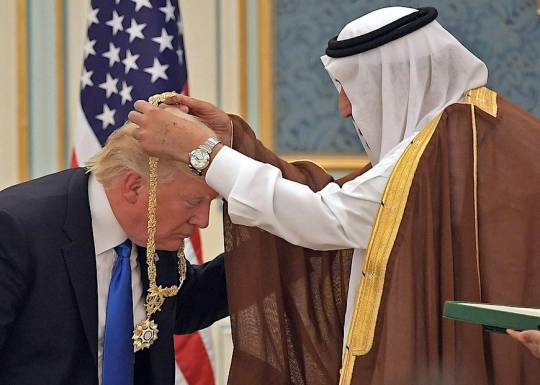
Donald Trump bows to King Salman bin Abd al-Aziz Al Saud of Saudi Arabia in 2017.
#persian gulf#iran#iran nuclear deal#saudi arabia#diplomacy#war#donald trump#trump administration#المملكة العربية السعودية#ایران#nicholas kristof
1 note
·
View note
Text
Ibn Saud Ex-rei da Arábia Saudita
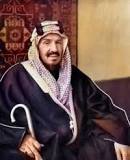
Abdalazize ou Abd al-Aziz Al Saud, mais conhecido como Ibn Saud, foi rei do Hijaz e do Négede entre 1926 e 1932 e o primeiro rei da Arábia Saudita entre 1932 e 1953. Na historiografia saudita,Assistir Filmes Online ele é chamado o primeiro rei do terceiro estado Saudita.
3 notes
·
View notes
Photo
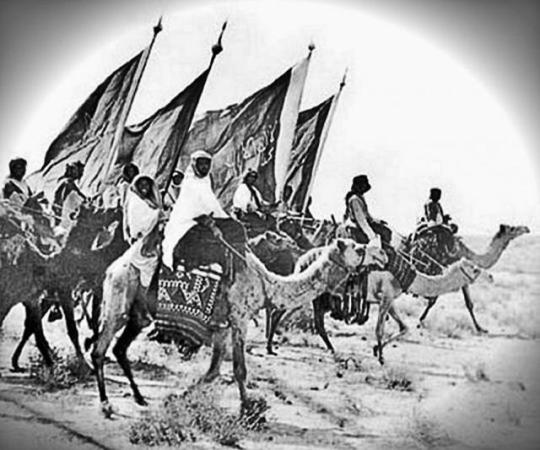
Grim History
The Ikhwan: The Sect that Became the Military of Saudi Arabia
Abd al-Aziz ibn Saud lived in exile for most of his ounger years. After fleeing with his family to Kuwait to escape from the marauding Al-Rashid tribe, he returned at the turn of the twentieth century to Riyadh and regained control of the central Arabian plain called the Najd. Over the years the Wahhabi cult had survived even though their tribal protectors, the Sauds, had been away. When they returned, the Wahhabis and the House of Saud joined forces once again, this time to establish Saudi Arabia as a modern nation-state.
The Sauds and Wahhabis had a long history of partnership. Originally the Wahhabis agreed to sanctify the royal family as long as they were allowed free reign to practice their austere and severe form of Islam. It was a mutually beneficial, symbiotic relationship since the Sauds used them to control their subject population. When Abd al-Aziz ibn Saud returned, they teamed up once again in order to reign with strength over the lawless deserts of the Arabian peninsula, Ibn Saud needed to pacify the Beduin tribes that relied on raiding parties and warfare to feed their families and survive. The Wahhabis closest to him took on the name Ikhwan, meaning “brethren”, to act as missionaries, giving the Pagan Beduin a choice of either converting to Islam and submitting to Ibn Saud or having their throats slit. As many tribes became converts and learned the extremely conservative doctrines of Wahhabi Islam, they abandoned their nomadic lifestyle, learned farming, and settled in towns near oases and wells.
The Ikhwan and Ibn Saud’s next plan was to build an army and re-conquer the Hejaz and once again take control of the Muslim holy cities of Mecca and Medina. The Hejaz was, at that time, ruled by the Ottoman caliph Sharif Hussayn, a king of the Hashemite dynasty who claimed direct descent from the prophet Muhammad. Sharif Hussayn was unpopular in the Islamic world. As pilgrims made the journey to the cities of Mecca and Medina, it was common for bandits to raid their caravans and take whatever valuables they could get; rather than policing the Hejaz and punishing the predatory criminals, Sharif Hussayn allowed them to operate freely as long as they gave him a cut of their spoils in return. Upon reaching the holy cities of Islam, the hajjis were further harassed by tax collectors who worked for him as well. So when the Ikhwan built up a massive enough army to raid the Hejaz, there were very few Muslims who did not wish them success in the conquest.
Armed with curved swords and spears, the Ikhwan rode to the mountain town of Taif on camels and horses, where they were welcomed as liberators and saviors. For some unexplained reason, the Ikhwan went on a rampage and killed most of the people who lived there, burned their houses and mosques, and looted whatever possessions they could find that they did not deem to be offenses to the Wahhabi version of Islam. After the siege of Taif, they used the town as a military fortress and camp from which they marched on Mecca and repeated the same same types of atrocities they had just finished. After the military assault, Sharif Hussayn abdicated his throne and his politically inept son Ali took over but soon departed. Abd al-Aziz ibn Saud now reigned over the Hejaz. After demarcating the borders of Transjordan, Iraq, and Kuwait in agreement with the British colonial administrators, the nation of Saudi Arabia was officially born and Abd al-Aziz ibn Saud was crowned by the Ikhwan as its first king.
But King ibn Saud’s plan to pacify the Beduin failed. Now convinced that they were warriors on a mission from Allah, they started organizing raiding parties that crossed over the border into Iraq where they slaughtered the impoverished shepherds who were grazing their flocks. Although the Ikhwan sometimes spared the lives of females, they used their swords to slice open the throats of any male children they captured and all the adult men were put to death. After one raiding party attacked a British police fort just over the border of Iraq, the British retaliated by using low flying airplanes equipped with bombs and machine guns to scatter and kill the bloodthirsty Ikhwan.
�� The Ikhwan started growing in confidence and eventually decided that King ibn Saud had started to abandon the practice of Wahhabism. When the king called a council with the Ikhwan leaders in Riyadh to discuss the problem of their cross-border raids, the narrow-minded fanatics accused him of such in-Islamic crimes as using infidel technologies like cars and radios. They were angry that he had allowed two of his sons to leave Saudi Arabia and travel overseas and they were furious, most of all, that he had consorted with British Christians for the purpose of political matters and the purchase of military supplies. King ibn Saud eventually convinced them that maintaining good relations with other governments was necessary for the stability of Saudi Arabia. He also agreed that he would give up his Western luxury items if the Ikhwan likewise agreed to give up their rifles which were also tools made for them by the Christian infidels. They agreed to a truce. But while the Najdi Ikhwan who lived close to Riyadh were satisfied with the new understanding, the Ikhwan from the eastern towns returned home and devised a plot to overthrow the House of Saud.
In 1927, the Ikhwan in Mutair and Ajman defied the king’s orders and continued to cross the borders into neighboring countries to slaughter their people. King Abd al-Aziz ibn Saud called up his troops and drove in cars and trucks to the eastern towns where the rebellion had been instigated by the tribal leaders al-Duwish and ibn Hithlain. The Battle of Sibilla had begun. King ibn Saud’s Ikhwan troops outnumbered and out-gunned the tribal rebels. With British-supplied machine guns mounted on the king’s vehicles, the eastern Ikhwan’s swords and rifles were a weak defense. The massacre ended almost as quickly as it started. The two tribal rebel leaders, al-Duwish and ibn Hithlain were taken to a rather luxurious prison in Riyadh; their wives and daughters were given to King ibn Saud and his sons for marriage. Eventually the rebel leaders died in jail.
King Abd al-Aziz ibn Saud consolidated his control over the Ikhwan. The more warlike members of the sect went on to enlist as soldiers in the Saudi Nation Guard, the army sworn to defend the royal family if the Saudi military ever tried to lead a coup against them. Others went on to become religious scholars and imams. Another faction morphed into the feared and hated Mutawwa, the Committee for the Promotion of Virtue and the Prevention of Vice otherwise known as the religious police. Their job, to this day, is to patrol the public spaces of Saudi Arabia with sticks used to beat anyone they think is behaving contrary to the laws of Wahhabi Islam.
Darlow, Michael and Bray, Barbara. Ibn Saud: The Desert Warrior Who Created the Kingdom of Saudi Arabia. Skyhorse Publishing, 2012.
4 notes
·
View notes
Text
Laporan Perjalanan Umrah 2014

Menjaga Tauhid, Renovasi dan Perluasan Al-Haram
4 Februari 2014 pukul 10.35
Menjaga Tauhid, Renovasi dan Perluasan Al-Haram
http://hariansinggalang.co.id/menjaga-tauhid-renovasi-dan-perluasan-al-haram/
Setelah 12 Tahun ke Mekkah (9):
Shofwan Karim Bin Abdul Karim Husein
— Muhammad Ibnu Abd al-Wahhâb (1115 – 1206 H/1701 – 1793 M ) berkolaborasi dengan Ibnu Saud, melakukan reformasi total kehidupan beragama di Jazirah Arabia pada ujung abad ke-18. Mereka menamakan gerakannya salafiyun (gerakan awal) yaitu kembali menerapkan agama Islam yang murni seperti yang diajarkan Rasulullah saw dengan menegakkan akidah Tauhid yang murni.
Meng-Esakan Allah tanpa reserve dengan tidak tedeng aling-aling. Mereka menyebut gerakan al-Muwahhidun. Prinsip teologi yang semata-mata mengiukuti al-Quran dan Hadist-Sunnah al-Shahihah.
Sebagian ahli menyebut bahwa mereka dalam teologi menggunakan pemikiran Ibn Taymiyah dan pemikiran Fikih, bermazhab Hanbali.
Oleh pihak Barat, mengikuti cara pikir para ahli Orientalis (ahli ketimuran) , mereka menyebut gerakan Wahabi.
Persiapan Thawaf, Saa'i dan Tahallul
Oleh karena bersandarkan kepada seorang tokoh sentral yaitu Muhammad ibnu ‘Abd al-Wahab . Hal itu merupakan metoda Barat dalam setiap menamakan gerakan, pikiran, dan gagasan yang selalu bersandarkan kepada tokoh sentral setiap gagasan itu.
Maka dulu, oleh para Orientalis masa awal, agama Islam disebut mereka sebagai Mohammadanisme atau paham Muhammad. Agak aneh terasa, sebagian besar umat Islam sekarang menisbahkan pula pemurnian Islam di Saudi itu sebagai Wahabisme atau paham Wahabi.
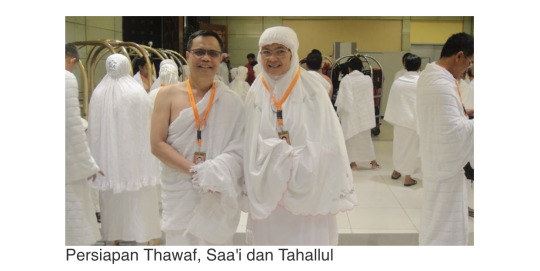
Muhammad Ibn Abdul Wahab, mengikat perjanjian dengan Muhammad Ibnu Saud, seorang pemimpin suku di wilayah Najd. Sesuai kesepakatan, Ibnu Saud ditunjuk sebagai pelaksana administrasi pemerintah atau bahasa populernya mengurus hal-hal yang bersifat politik.
Sementara Muhammad bin Abd al-Wahhâb menjadi pemimpin syariah, pengawal akidah dan kehidupan spiritualitas. Sampai saat ini, gelar Malik atau Raja dan “keluarga kerajaan” negara Arab Saudi dipegang oleh keluarga Saud. Namun Mufti Umum Kerajaan, tidak selalu dari keluarga Muhammad bin Abd al-Wahhâb misalnya Syaikh ‘Abdul ‘Aziz Ibn Abdullah Ali Ibn Baz (1909-1999).
Dalam kajian sejarah, kolaborasi Ibnu Saud dan Ibnu Abdul Wahab itu, telah mengalami pasang naik dan surut dari akhir abad ke-18 sampai awal abad ke-20.
Pada tanggal 23 September 1932, Abdul Aziz bin Abdurrahman Al-Sa’ud mem proklamasikan berdirinya Kerajaan Arab Saudi atau Saudi Arabia (Al-Mamlakah Al-’Arabiyah Al-Su’udiyah) dengan menyatukan wilayah Riyadh, Najd (Nejed), Ha-a, Asir, dan Hijaz. Abdul Aziz kemudian menjadi raja pertama pada kerajaan tersebut. Dengan demikian dapat dipahami, nama Saudi berasal dari kata nama keluarga Raja Abdul Aziz Al-Sa’ud. Pada waktu, Negara kerajaan ini beum makmur. Tetapi setelah minyak bumi ditemukan sebe lumnya serta dieksplorasi 1938, kerajaan ini menjadi kaya raya.
Pada 26 Agustus 2011, Raja Arab Saudi (ke-VI dinobatkan 2005) yang memerintah sebagai Raja, Kepala Negara sekaligus Kepala Pemerintahan, Abdullah bin Abdul Aziz (lahir 1924) meletakkan batu pertama dimulainya proyek akbar perluasan Masjidil Haram.
Abdullah dilantik sebagai Pangeran 1985 dan setelah Raja Fahd kurang sehat maka secara defacto sebelum dilantik sebagai Raja tadi, telah bertindak sebagai Raja sejak 1995. Kemudian setelah Raja Fahd, saudara seyahnya wafat tahun 2005, Abdullah menjadi Raja sampai sekarang.
Belajar agama, seoerang anak dengan gurunya, antara zuhu dan ashar di Masjdi Nabawi Madinatyul Munawwarah
Selain perluasan Masjidil Haram, Raja Abdullah telah meresmikan berfungsinya Makkah Royal Clock Tower, yang merupakan menara jam tertinggi di dunia.
Puncak menara jam paling akbar berlapis emas itu tingginya 661 meter. Tower tempat bertenggernya jam raksasa itu, sekaligus ikon atau landmark kota Makkah. Menara ini bukan berdiri sendiri.
Melainkan hanya satu puncak tertinggi saja dari satu komplek gedung super-luas-megah, yang di situ ada 8 hotel .
Di bawahnya ada super market, mall, toko dan sekalian pusat bisnis nasional dan multi nasional. Komplek gedung dan tower ini menghadap tepat pintu satu Masjidil Haram.
Bila Matahari belum sampai ke 90 derjat, maka menara raksasa itu, tampak memberi keteduhan dibalik bayang-bayangnya kepada Ka’bah di tengah Masjidil Haram. Baik pagi atau sore hari.
Tentang renovasi dan perluasan Masjidil Haram, menurut media on-line dan dari mulut ke mulut, diperkirakan akan selesai 2018. Oleh karena itu, siang –malam, non-stop pekerjaan dikebut.
Setelah menunaikan ibadah umrah 2 kali, setelah tahwaf dan ibadah wajib dan sunat lainnya, kami menyusuri bagian kanan luar tempat Saa’i, Safa-Marwa. Tampaknya wilayah itu menjadi perluasan yang dimaksud. Dan Bukit-bukit di sekitar itu mulai diruntuhkan dan digaruk.
Bahkan dari ujung luar Marwa, tidak bisa ditembus dengan jalan kaki sekarang, alias ditutup. Maka kalau kita akan mengelilingi Masjidil Haram, harus masuk lagi ke tempat Saa’i dan keluar merencah membelah Masjid untuk keluar lagi di depan Hotel Hilton.
Di tengah renovasi bagian dalam, tampak ditata rapi, “sementara”, dengan dinding fiber-glass pada bagian-bagian yang sedang dikerjakan.
Sekaligus pengaman. Sehingga tidak mengganggu ibadah yang setiap menit sepanjang hari dilakukan jamaah.
Sebuah jalan depan Multazam, di belakang Makam (jejak) Ibrahim, merupakan lorong lebar yang di sekat kiri-kanan arah ke Bukit Safa. Dulu pada tahun 1996 di sini tempat sumur Zamzam. Sekarang tempat itu sudah rata dengan pelatran thawaf semuanya.
Artinya semua air Zamzam sudah dilalirkan ke semua titik yang sudah diatur dan dimasukkan ke tank untuk diletakkan di berbagai tempat terutama jalur jalan masuk arah ke Ka’bah. Dan kalaupun masih ada yang ingin berwuduk dengan air Zanzam, ada tempatnya dipinggir dinding belakang bagian dalam Masjidil Haram.
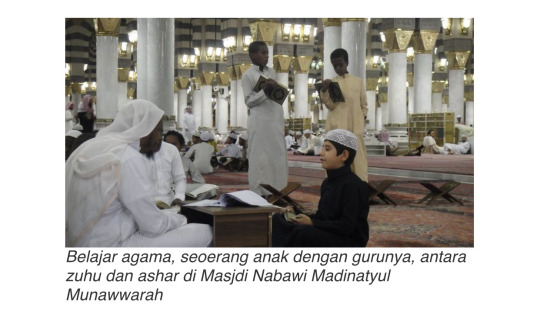
Termasuk di lantai 2. Dan bila ingin ke toilet dan berwuduk, maka tempat di luar Masjid di pekarangan luar sudah ditata lebih bagus dan indah lagi.
Dulu kalau mau berwuduk sekaligus harus turun ke bawah permukaan tanah atau basement yang menyatu dengan parkiran. Sekarang, kalau hanya untuk wuduk saja dan sekalian minum air Zamzam, selain dari tanki, juga ada keran yang di tata rapi merata dengan jarak tertentu di pekarangan atau halaman sekeliling Masjid. Tetapi kalau ingin ke toilet sekalian, ya tetap harus masuk ke bawah pelataran basement tadi, seperti masa lalu. (*)
0 notes
Text
Precies honderd jaar geleden vond het Bloedbad van Tanomah plaats, zeggen de Houthi's. Echt gebeurd, zegt de deskundige
In Noord-Jemen regeren al acht jaar de Houthi’s, een curieuze mix van koningshuis met pausdom, overgoten met een sausje Guevara. Morgen (1 juli 2023) herdenken ze het bloedbad van Tanomah. Dat is nu een idyllisch stadje hoog in de Saoedische bergen. Een eeuw geleden slachtte een Saoedische militie daar duizenden Jemenitische pelgrims af. Veel gebruikt in propaganda, desondanks de…
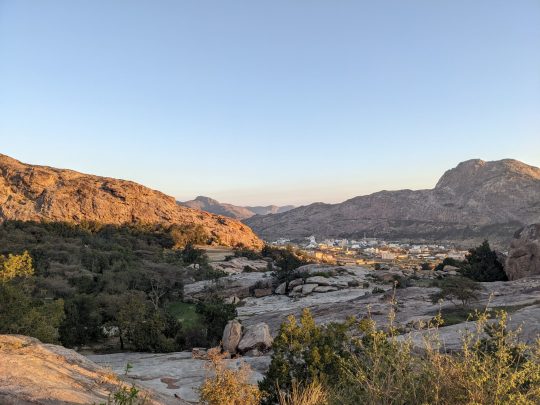
View On WordPress
0 notes
Text
John Kelly reportedly used to mute the line: urge Trump not to discuss sensitive topics
John Kelly reportedly used to mute the line: urge Trump not to discuss sensitive topics
(THIS ARTICLE IS COURTESY OF THE BUSINESS INSIDER)
John Kelly reportedly used to mute the line during calls with world leaders to urge Trump not to discuss sensitive topics Michelle Mark 3m
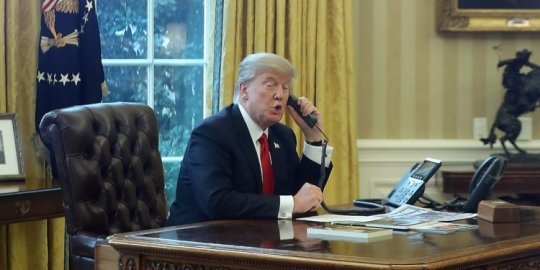
President Donald Trump is seen through a window speaking on the phone with King of Saudi Arabia, Salman bin Abd al-Aziz Al Saud, in the Oval Office of the White House, January 29, 2017 in…
View On WordPress
#Biden#CIA#code word#John Kelly#mute phone calls#national security#Trump#UKraine#whistle blowers#White House
0 notes
Text
Khalid Free Spirit World Tour

Love R&B? Get in touch with Khalid in MGM Grand Garden Arena, Las Vegas, don't miss the day 2019/06/22, sharp at 20:00:00. Khalid (variants include Khaled and Kalid; Arabic: خالد) is a popular Arabic male given name meaning "eternal", and it also appears as a surname.Khalid Sheikh Mohammed (sometimes also spelled Khalid Shaikh Mohammed; among at least fifty pseudonyms; born March 1, 1964; or April 14, 1965) is a Pakistani Islamist militant held by the United States at the Guantanamo Bay detention camp under terrorism-related charges.Khālid ibn al-Walīd ibn al-Mughīrah al-Makhzūmī (Arabic: خالد بن الوليد بن المغيرة المخزومي; 585–642), commonly known as simply Khalid ibn al-Walīd, was an army commander under Abu Bakr and Umar ibn Khattab.Khalid Donnel Robinson (born February 11, 1998), known mononymously as Khalid, is an American singer and songwriter.Khalid bin Abdulaziz Al Saud (Arabic: خالد بن عبد العزيز آل سعود Khālid ibn ‘Abd al ‘Azīz Āl Su‘ūd; 13 February 1913 – 13 June 1982) was King of Saudi Arabia from 1975 to 1982. His reign saw both huge developments in the country due to increase in oil revenues and significant events in the Middle East.Khalid Muhammad Abdallah al-Mihdhar (Arabic: خالد المحضار, Khālid al-Miḥḍār; also transliterated as Almihdhar) (May 16, 1975 – September 11, 2001) was a Saudi Arabian terrorist.Khaleda Zia (IPA: kʰaled̪a dʒia; born Khaleda Khanam Putul in 1945) is a Bangladeshi politician who served as the Prime Minister of Bangladesh from 1991 to 1996, and again from 2001 to 2006. She was the first woman in the country's history and second in the Muslim majority countries (after Benazir Bhutto) to head a democratic government as prime minister.American singer and songwriter Khalid has released two studio albums, one extended play, twenty-one singles (including ten as a featured artist), and three promotional singles.Khaled Mashal (Arabic: خالد مشعل Khālid Mashʿal, Levantine Arabic: , born 28 May 1956) is a Palestinian political leader and the head of the Islamic Palestinian organization Hamas since the Israeli assassination of Abdel Aziz al-Rantisi in 2004. He stepped down as Hamas' politburo chief at the end of his term limit in 2017.After the founding of Hamas in 1987, Mashal came to lead the Kuwaiti branch of the organization.Khaled Hosseini (Persian: خالد حسینی ; ; born March 4, 1965) is an Afghan-American novelist and physician. Read the full article
0 notes
Text
Faisal da Arábia Saudita Rei
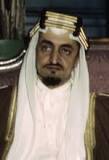
Faisal bin Abdulaziz Al Saud, foi rei da Arábia Saudita de 1964 a 1975.WikipédiaNascimento: 14 de abril de 1906, Riad, Arábia SauditaData do enterro: 26 de março de 1975Assassinato: 25 de março de 1975,Filmes Online HD Riad, Arábia SauditaCônjuge: Jawhara bint Saud bin Abd al Aziz al Saud al Kabir (desde 1935), MAISFilhos: Khalid Al-Faisal, Saud bin Faisal bin Abdulaziz Al Saud, MAISPrêmios: Real Colar Vitoriano
1 note
·
View note
Photo
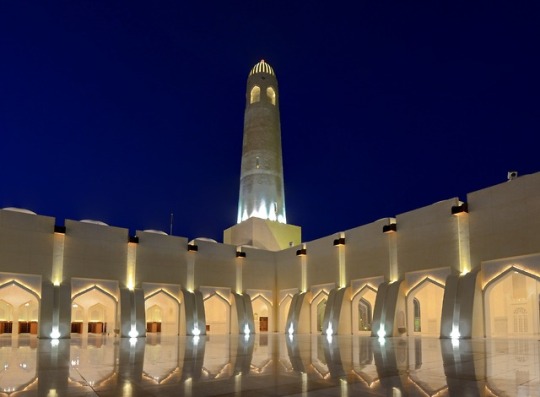
Grim History
The Rise of Wahhabi Islam and the Conquest of the Arabian Peninsula
In the early years of the 18th century, the impoverished region of the central Arabian peninsula called the Najd was a veritable backwater. Dominated by the northern Arabian Rashid tribe with support from the Ottoman Empire, the Najdi people were suffering from poverty due to agricultural difficulties. The practice of Islam had faded away and given rise to superstitious rites and the worship of saints in its place. Violence, lawlessness, and constant raiding by Bedouin tribes were seemingly never-ending problems. Out of the chaos came a young student of Islamic law named Muhammed ibn Abd-al Wahhab who promised to alleviate their distress if they returned to the way of life set out by the first adherents to the Muslim religion. His teachings transformed the Arabian lands and set the course of the region on the path to fundamentalist militant Islam.
Born sometime in the first decade of the 1700’s, Abd al-Wahhab came from a family of judges. Raised in the Sunni Hanbali school of Muslim jurisprudence, he chose his devotion to the practice of law at an early age. After going on pilgrimage in Mecca and Medina, Adb-al Wahhab returned to his native village of Uyayna, convinced after what he saw there that Muslims had abandoned the true and pure form of Islam as it was originally planned out by the prophet Mohammad. He began preaching about the purification of Islamic teachings and soon began attracting adherents to his revivalist style of militancy and literalism. Male followers were made to wear a plain white thobe and turban on their heads rather than the traditional Bedouin iqal, the black rope used to hold their headscarves in place. Female disciples were commanded to dress with extreme modesty in the full black burqa covering all parts of their bodies except for their eyes.
Aside from the memorization of the Qur’an, the early Wahhabis believed that every aspect of their lives had to be done in strict obedience to Allah without any influence from anything else. Thus, praying to saints, a practice that had gained in popularity in those times, was strictly forbidden. Even the intervention of doctors in illnesses or injuries was banned because the patient in such situations did not seek out guidance from Allah instead. Women were to be highly regarded just as long as they married and did their wifely duties. Social interaction between members of the opposite sex was outlawed to prevent extra-marital affairs; this social taboo, if broken, was punishable by public whippings and beatings. Followers of Christianity, Judaism, or any other religion were regarded as sorcerers and agents of evil and Muslims who practiced or believed anything other than the Wahhabi cult’s doctrine were thought of as heretics and enemies of the true faith of Islam.
Muhammad ibn Abd-al Wahhab starting gaining notoriety when he and his followers set out on a campaign to clean up their society. They began their rampage by destroying a coffin containing the remains of a revered saint, said to have healing powers. The people of the Najd also had taken to worshiping sacred trees which they believed to have supernatural powers; Abd-al Wahhab and his followers cut these down. They also found a woman who had been known for speaking publicly about cheating on her husband; when they commanded that she repent, she reacted with defiance and claimed to be proud of her infidelity. Her punishment was that they buried her up to the neck in sand and threw rocks at her head until she died. Public beheadings were another common punishment for other transgressions. To top it all off, the Bani Khalid tribal chief Sulaiman ibn Muhammad ibn Ghurayr forced the Wahhabis to leave the eastern Najdi region because they declared taxation to be against the teachings of Islam, something that did not impress a chief whose main source of income was tax revenues.
Abd-al Wahhab moved on. Upon arriving at the town of Dhiriya, he was welcomed in and soon struck up a friendship with Muhammad ibn Saud, the grandfather of Abdul-aziz ibn Saud, the first king of the modern nation of Saudi Arabia. Muhammad ibn Saud was impressed by the strictly disciplined followers of Abd-al Wahhab and the two agreed that by combining the Wahhabi teachings with militant tribal politics, they could conquer the Arabian peninsula. After forming this alliance, they built up an army and seized the town of Riyadh. Whipped up into a frenzy of religious zeal, the Wahhab-Saud alliance’s army began raiding nearby tribes, forcing them to convert as they conquered each one. They marched on the eastern towns of Hasa and Qatif, down to the peninsula of Qatar, south to Oman and Yemen, then north to the Rashid fortress in Ha’il and the Shi’ite-dominated city of Karbala. All along the way they gave the conquered people the choice of peacefully converting to the Wahhabi creed or being slaughtered. They all chose to convert and the first Saudi emirate of Dhiriya was born.
Next they turned their attentions to the Hejaz, the western strip of the Arabian peninsula where the holy cities of Mecca and Medina were under the control of the Ottoman Empire. They seized these cities too and ruled them for years, refusing to allow any Muslims other than Sunni Wahhabis to perform the Hajj pilgrimage. But as time went on, the insular Wahhab-Saud alliance had no contact with the outside world. The Industrial Revolution produced new technologies for killing and new strategies for warfare and the Wahhabis, smug in their fanatical conceit, knew nothing of them. The Ottoman Empire built up a proxy army of Egyptian soldiers who marched on the Hejaz, decimating the Wahhabis and taking control, once again, of the cities of Mecca and Medina. Meanwhile, the Ottomans also supplied the Rashids with war materiel and assisted them when they attacked Riyadh, forcing the House of Saud to flee to Kuwait where they lived in exile until their return in the 20th century.
To this day, the Sauds have maintained their alliance with the Wahhabis who act as the official governing body of religious clerics in the Kingdom of Saudi Arabia. Wahhabi doctrine not only acts as the founding principle of national and religious identity for Saudis but it also provides the belief system for fundamentalist terrorist groups like Al Qaeda and ISIS. Their goal of dominating the world through a radical, draconian interpretation of Islam is the modern ancestor of the fanatical teachings of Muhammad ibn Abd-al Wahhab.
Darlow, Michael and Bray, Barbara. Ibn Saud: The Desert Warrior Who Created the Kingdom of Saudi Arabia. Skyhorse Publishing, 2012
#grim history#saudi arabia#muhammed ibn abd-al wahhab#wahhabis#muslim sects#islamic cults#middle eastern history
4 notes
·
View notes
Photo
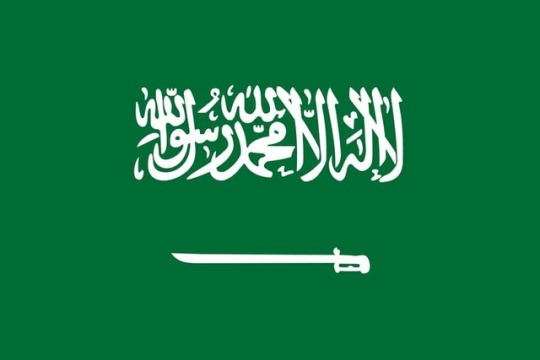
Continuamos orando por nosso país e pela paz em Israel. Além disso, no dia de hoje, estaremos orando pela Arábia Saudita. Arábia Saudita é, por tamanho de território, o maior país árabe na Ásia e na Península Arábica (cerca de 2 150 000 quilômetros quadrados), constituindo a maior parte da Península Arábica, e o segundo maior país árabe do mundo (após a Argélia). Tem fronteiras com Jordânia e Iraque ao norte; Kuwait ao nordeste; Catar, Barém e Emirados Árabes Unidos a leste; Omã ao sudeste; Iêmen ao sul; mar Vermelho ao oeste e com o golfo Pérsico a leste. Sua população é estimada em 16 milhões de cidadãos nativos, 9 milhões de expatriados estrangeiros e 2 milhões de imigrantes ilegais registrados. Destes 27 milhões, cerca de 4,4% ou pouco mais de 1 milhão de pessoas é cristã. A grande maioria da população (93%) é mulçumana. Suas principais cidades são: Riade, a capital; Jidá, principal porto e antiga capital; e Meca e Medina, cidades sagradas do islamismo. O Reino da Arábia Saudita foi fundado por Abd al-Aziz Al Saud (mais conhecido ao longo de toda sua vida adulta como Ibn Saud) em 1932, embora as conquistas que levaram à criação do Reino tenham começado em 1902, quando ele capturou Riade, a casa ancestral de sua família, a Casa de Saud, conhecida em árabe como Al Saud. Desde a criação do país, o sistema político tem sido o de uma monarquia absoluta teocrática. O governo saudita se descreve como islâmico e é altamente influenciado pelo uaabismo. A Arábia Saudita muitas vezes é chamada de "Terra das Duas Mesquitas Sagradas", em referência às mesquitas Grande Mesquita (em Meca) e Mesquita do Profeta (em Medina), os dois lugares mais sagrados do islamismo. Com a segunda maior reserva de petróleo e a sexta maior reserva de gás natural do mundo, a Arábia Saudita é classificada como uma economia de alta renda pelo Banco Mundial e possui o 19º maior PIB do mundo. Por ser o maior exportador mundial de petróleo, o país garantiu sua posição como um dos mais poderosos do mundo. A economia saudita é amplamente apoiada por sua indústria de petróleo, que responde por mais de 95% das exportações e 70% das receitas do governo. Ore pela penetração do evangelho naquele país. (em João Pessoa, Brazil) https://www.instagram.com/p/BsZSRsoHb2z/?utm_source=ig_tumblr_share&igshid=g4w3wy0yiczh
0 notes